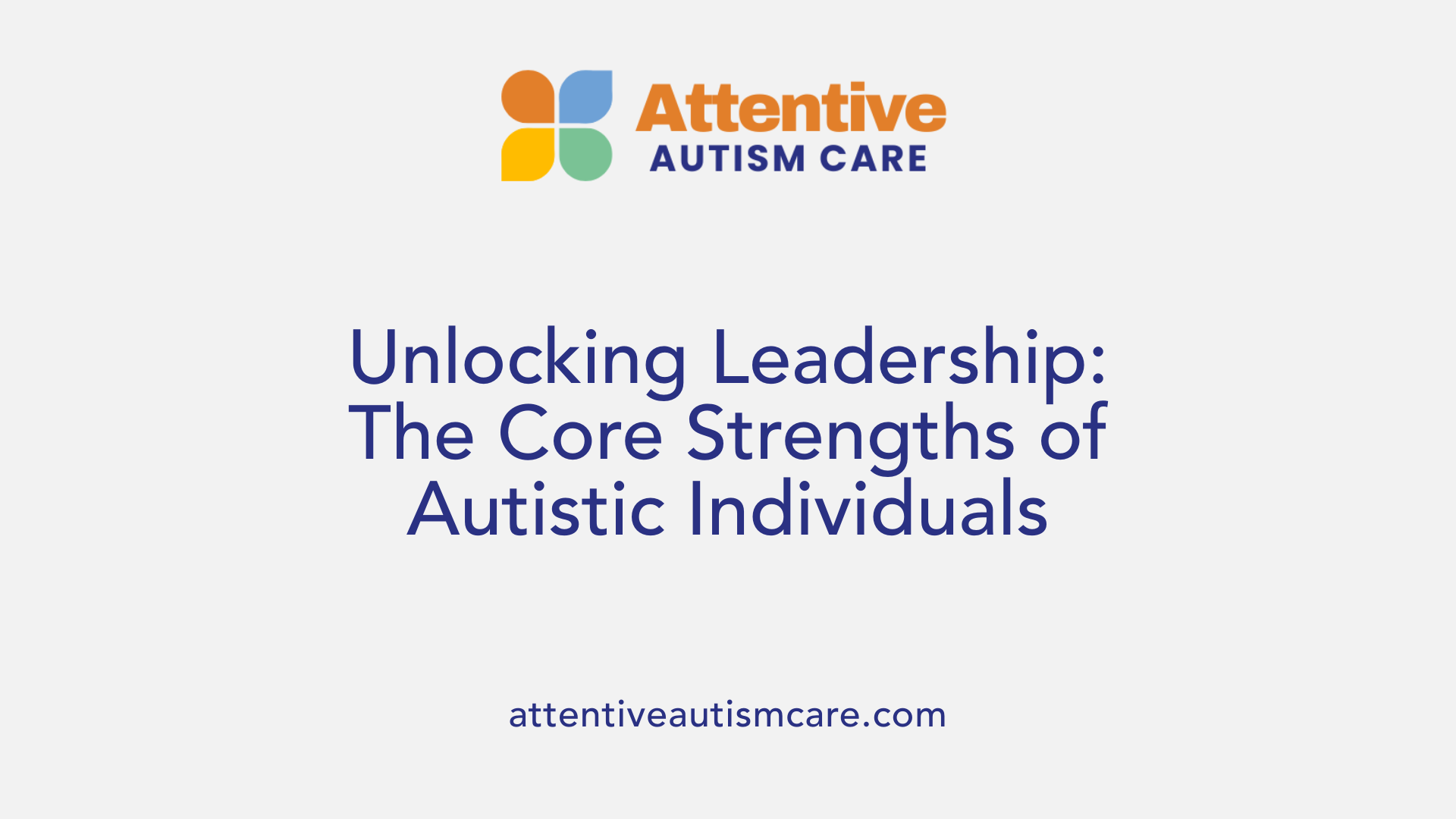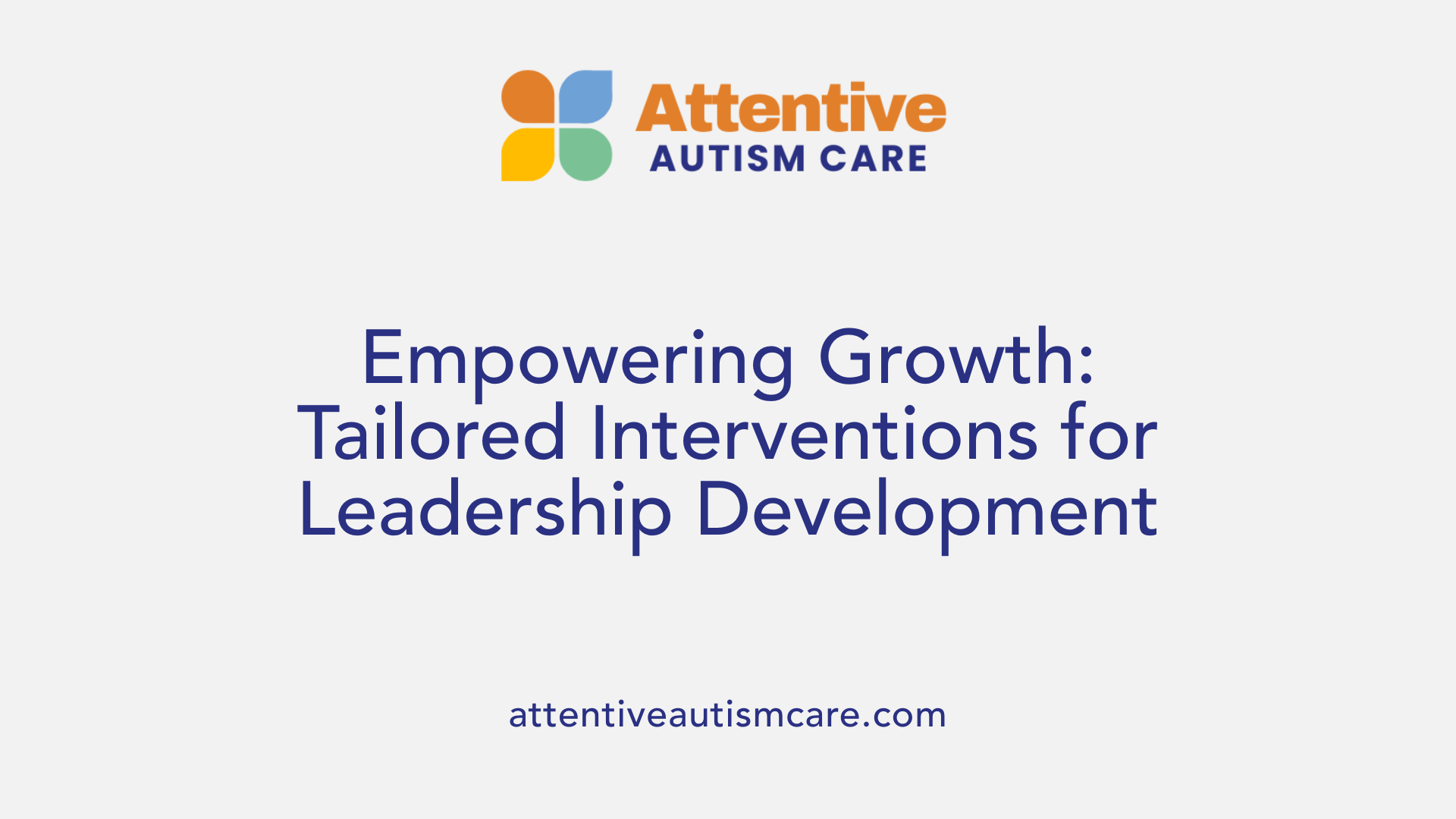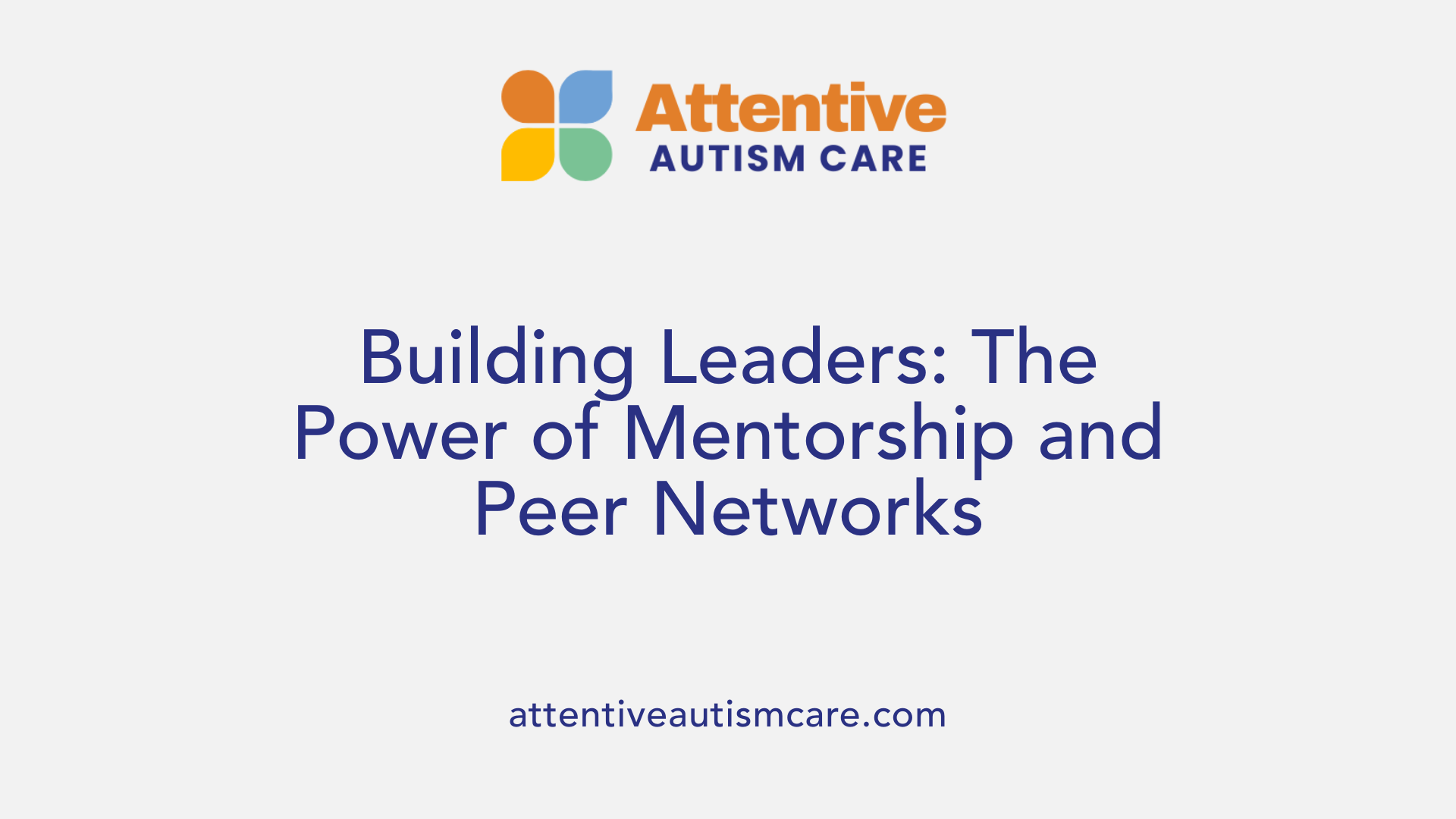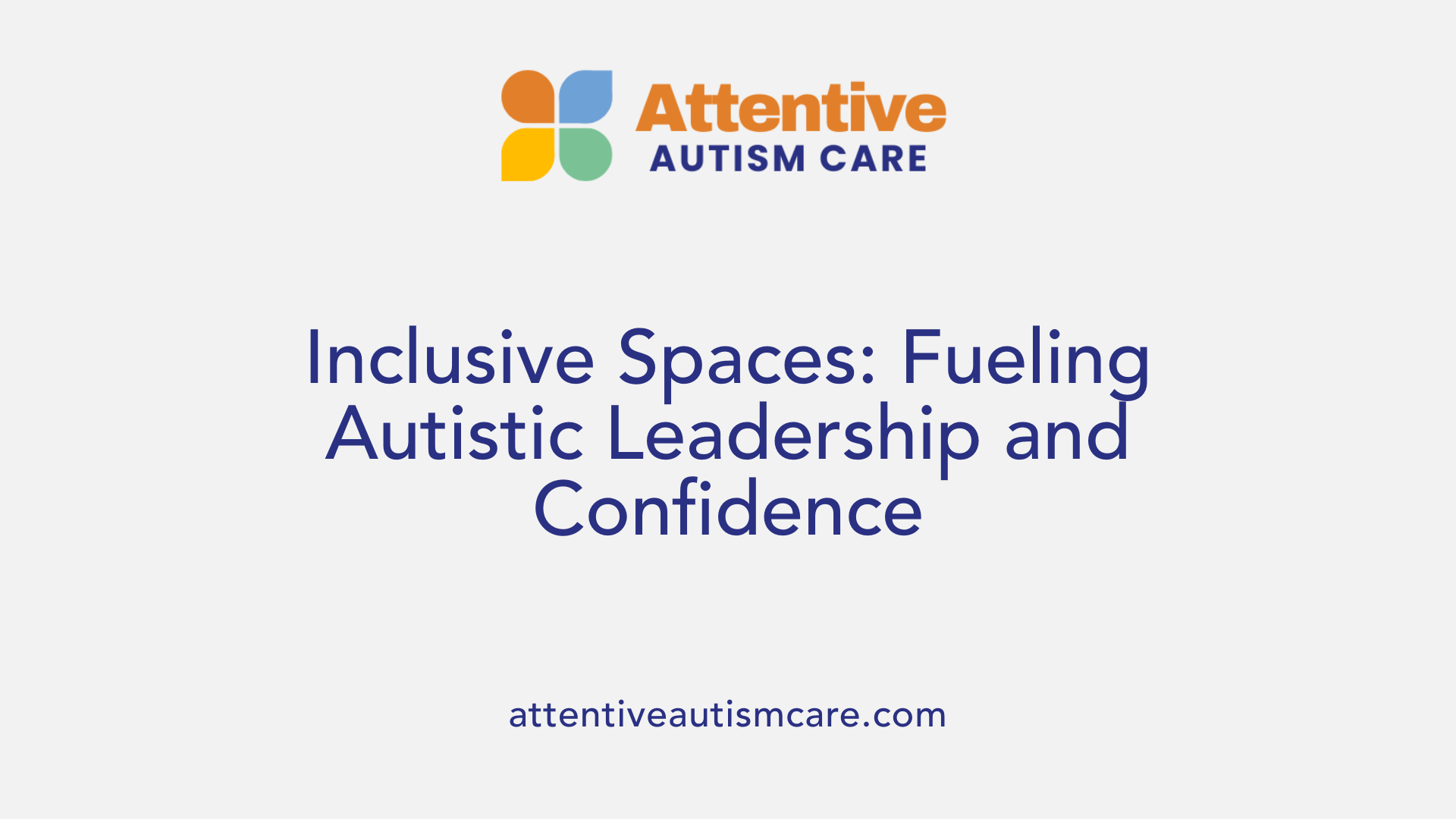How to Support Autistic Youth in Leadership Development
Empowering Future Leaders: Supporting Autistic Youth in Leadership Development

Understanding the Unique Strengths of Autistic Youth
Autistic youth possess a range of distinctive qualities that position them as capable and innovative leaders. These include intense focus, creativity, systematic thinking, and persistence. Recognizing and nurturing these strengths is essential in fostering effective leadership among autistic individuals, offering them opportunities to excel and influence their communities.
Core Strengths Supporting Leadership Potential in Autism

What strengths do autistic individuals possess that support leadership?
Autistic individuals often possess a set of qualities that can serve as a strong foundation for effective leadership. These include intense focus, which allows sustained attention on tasks and goals; creativity, fostering innovative thinking; strong problem-solving skills that help overcome challenges; persistence, enabling resilience in difficult situations; and systematic thinking, aiding in organization and strategic decision-making.
These attributes not only help individuals excel in various roles but also provide unique perspectives that can inspire and guide others. The ability to work diligently with dedication and a logical approach to problems makes them valuable as leaders in diverse settings.
How do strengths like persistence and systematic thinking benefit leadership?
Persistence is crucial for leading through setbacks and maintaining momentum toward objectives. It demonstrates resilience and a commitment to success, encouraging teams to stay motivated.
Systematic thinking enhances a leader’s ability to plan strategically and analyze complex situations effectively. It promotes thorough evaluation and thoughtful decision-making—skills that are vital in navigating organizational challenges.
Together, these qualities form a powerful toolkit that helps autistic individuals lead with confidence, foster innovation, and achieve sustained success. While some challenges like social communication difficulties and sensory sensitivities exist, targeted supports such as ABA therapy can help develop these skills further and maximize leadership potential.
Supporting Autistic Youth Through Therapy and Tailored Interventions

How does ABA therapy support leadership development in autistic individuals?
Applied Behavior Analysis (ABA) is a widely recognized approach that helps autistic youth improve social communication, emotional regulation, and flexibility. These skills are fundamental for effective leadership, as they enable individuals to interact confidently, adapt to new situations, and manage emotions in challenging circumstances.
ABA therapy addresses specific behaviors and skill deficits, fostering independence and self-advocacy. As autistic individuals enhance their ability to communicate and regulate emotions, they become more capable of taking on leadership roles within peer groups, community projects, or workplace settings.
Through targeted reinforcement and skill-building exercises, ABA helps youths develop a strong sense of self-efficacy. This lays the groundwork for leadership by empowering them to guide others, participate actively in decision-making, and exhibit resilience in various social environments.
What are effective approaches to address sensory sensitivities to support leadership growth?
Sensory sensitivities can pose challenges to engagement in leadership activities. To support autistic individuals, creating sensory-friendly environments is essential. This includes reducing noise, minimizing bright lights, and offering quiet spaces for de-escalation.
Using visual supports, such as schedules, visual cues, and social stories, helps clarify expectations and reduces anxiety associated with sensory overload. Customizing routines ensures that activities align with each individual's sensory preferences and needs.
These tailored interventions make it easier for autistic youth to participate fully in leadership roles, fostering confidence and independence. When sensory sensitivities are managed effectively, individuals are more likely to take initiative, collaborate with others, and develop leadership qualities.
How tailored intervention fosters social and leadership skills
Individualized support plans that target social skills are crucial for leadership development. Such interventions often combine social skills training, mentoring, and community-based activities.
Programs like mentorship and peer groups provide safe spaces for practicing leadership, communication, and teamwork. Regular participation in these activities enhances self-esteem and social confidence.
Furthermore, community service opportunities and leadership training programs tailored for autistic youth equip them with real-world skills. These experiences, coupled with visual supports and sensory accommodations, enable youths to develop their strengths—such as attention to detail, systematic thinking, and authenticity—and apply them in various leadership settings.
By focusing on each individual's strengths and needs, tailored interventions support sustained growth, helping autistic individuals step into leadership roles with confidence and resilience.
Mentoring and Peer Support: Building Foundations for Leadership

How can mentorship foster leadership among autistic youth?
Mentorship plays a vital role in developing leadership qualities among autistic youth by offering consistent support, guidance, and role models. Different forms of mentoring—such as peer mentoring, disability mentoring, group mentoring, and e-mentoring—create varied opportunities for young autistics to share experiences, learn from others, and build confidence.
These relationships promote social and emotional growth, empower individuals to develop problem-solving, communication, and interpersonal skills, and encourage self-advocacy. Regular contact and tailored approaches ensure that mentoring aligns with each youth’s unique needs, fostering leadership that is authentic and sustainable.
Why is mentoring especially beneficial for youth with disabilities?
Mentoring supports youth with disabilities by helping them navigate challenges related to social skills, employment, and community involvement. It boosts self-esteem and reinforces a positive identity, which are essential for stepping into leadership roles.
Additionally, mentoring facilitates a smoother transition into adulthood by providing supportive networks, encouragement, and practical advice on careers and education. The sense of belonging and validation gained through mentoring enhances confidence and prepares young people for broader community leadership.
Types of mentoring approaches
| Mentoring Type | Description | Benefits |
|---|---|---|
| Peer mentoring | Same-age peers supporting each other | Builds friendships and mutual understanding |
| Disability mentoring | More experienced mentors with disabilities guiding youth | Role modeling and tailored guidance |
| Group mentoring | One mentor works with multiple mentees | Promotes social skills and group dynamics |
| E-mentoring | Online platforms connecting mentors and mentees | Accessibility and wider reach |
The importance of high-quality relationships, regular contact, and personalized mentoring
Effective mentoring depends on strong, trust-based relationships. Consistent interaction, whether weekly or monthly, helps mentees feel supported and understood. Personalization ensures that the support addresses individual goals, challenges, and interests.
Incorporating these elements optimizes the developmental benefits of mentoring, providing autistic youth with the tools, confidence, and leadership skills necessary for personal and community growth.
Building Confidence and Identity Through Autism Peer Groups
How do autism peer groups support leadership development?
Autism peer groups serve as nurturing environments where members can freely express themselves, share their personal experiences, and learn from a range of perspectives. These interactions help build essential communication and social skills, which are crucial for leadership.
Within these groups, members often develop a stronger sense of trust and community, fostering mutual support and collaboration. This sense of connection encourages individuals to take on leadership roles, whether by leading discussions, organizing activities, or mentoring newer members.
By participating regularly, autistic individuals gain confidence in their abilities and find encouragement to advocate for themselves and others. These groups also provide opportunities to practice decision-making and problem-solving, foundational elements in leadership.
What impact do peer groups have on the self-identity of autistic individuals?
Being part of an autism peer group has a powerful impact on how individuals view themselves. Participation often enhances self-awareness and acceptance, helping members recognize and embrace their unique traits.
Many members feel a greater sense of pride in their autistic identity, which bolsters self-esteem and resilience against societal stereotypes. The support from peers fosters a feeling of belonging and validation, empowering members to be active advocates for themselves and their communities.
This positive self-identity encourages members to step into leadership roles, promoting acceptance and understanding within broader society.
Additional insights about autism peer groups and leadership
| Aspect | Benefit | Additional Details |
|---|---|---|
| Safe expression | Encourages authentic leadership and sharing | Members can voice ideas without judgment |
| Diversity of perspectives | Broadens understanding and empathy | Facilitates inclusive leadership practices |
| Bonding and support | Enhances confidence and social competencies | Leads to stronger teamwork and collaboration |
Participation in autism peer groups not only nurtures leadership skills but also helps individuals cultivate a positive sense of self, ultimately empowering them to become active leaders and advocates in their communities.
Creating Inclusive and Empowering Environments

How can environments be designed to empower autistic youth in leadership?
Designing spaces that are sensory-friendly and inclusive is essential for fostering confidence and active participation among autistic youth. These environments incorporate sensory considerations such as quiet zones, adjustable lighting, and noise controls to reduce overwhelm and support focus.
Structured routines and visual supports like charts, picture schedules, and clear signage help set expectations, making the environment predictable and safe. This clarity allows youth to concentrate on their tasks and engage more fully.
Encouraging self-advocacy within these settings is vital. Providing opportunities for youth to voice their preferences and participate in decision-making nurtures their sense of autonomy. Involving them in designing or modifying their environments can develop leadership skills and a stronger sense of ownership.
Collaboration with caregivers, educators, and the youth themselves is crucial. Tailoring spaces to meet individual needs ensures that every young person has the resources and support to thrive, ultimately promoting development of leadership qualities.
What role do community and organizational supports play?
Community programs and organizations serve as pivotal resources that offer ongoing opportunities for leadership and social engagement. Through mentorship, clubs, and advocacy groups, young autistic individuals can develop confidence, voice their ideas, and practice leading initiatives.
Workshops and training programs organized by these entities can teach communication strategies, self-advocacy, and leadership skills. These supports reinforce the competencies gained in tailored environments and provide a platform for sustained growth.
In summary, creating environments that are sensory-friendly, structured, and inclusive, supported by robust community and organizational resources, significantly enhances autistic youth’s opportunities for leadership and self-empowerment.
| Aspect | Details | Supporting Resources |
|---|---|---|
| Environment Design | Sensory considerations, visual supports, routines | Visual schedules, sensory zones, quiet spaces |
| Youth Participation | Self-advocacy, involvement in design | Youth councils, feedback sessions |
| Community Support | Mentorship, training, advocacy | Autism organizations, local programs |
| Outcomes | Increased confidence, leadership skills, self-determination | Success stories, evaluation data |
Stories of Success, Empowerment, and Systemic Change
Notable Autistic Leaders and Their Impact
Autistic individuals have made remarkable strides in diverse fields, serving as role models and catalysts for change. Temple Grandin, a renowned animal scientist, has transformed livestock handling through her innovative designs, emphasizing her ability to combine creativity with detailed thinking. Her story underscores how strengths like focused attention and systematic thinking can drive leadership success.
Similarly, Angela Andrews exemplifies how a data-driven approach and determination can lead to significant achievements. As an advocate and researcher, her work emphasizes the importance of leveraging logical and analytical skills, demonstrating how autistic individuals can excel in leadership roles.
Overcoming Barriers and Achieving Recognition
These inspiring stories highlight how perseverance and targeted support can help autistic individuals overcome challenges like social communication difficulties and sensory sensitivities. With strategies such as Applied Behavior Analysis (ABA) therapy and mentorship, many develop vital skills for effective leadership. Their journeys from facing barriers to leading change inspire others to pursue their goals.
Promoting Neurodiversity and Creating Supportive Environments
Celebrating successes like those of Temple Grandin and Angela Andrews fosters a broader understanding of neurodiversity. Supportive environments—both education and workplace—enhance the potential of autistic individuals, promoting inclusivity and innovation. These environments value unique perspectives, encouraging autistic individuals to lead and contribute meaningfully.
Inspiring Systemic Change Through Personal Stories
Sharing stories of overcoming obstacles and excelling in leadership roles inspires a shift in societal perceptions. They challenge stereotypes, showing that autism can be associated with strengths and leadership qualities. These narratives motivate organizations and communities to create more inclusive spaces that recognize and nurture talent among autistic people.
| Notable Figures | Contributions | Leadership Qualities | Impact on Society |
|---|---|---|---|
| Temple Grandin | Innovated animal handling systems | Creativity, detail-oriented | Improved livestock welfare, awareness for neurodiverse strengths |
| Angela Andrews | Data-driven research and advocacy | Analytical thinking, perseverance | Promoted neurodiversity understanding, supported inclusive policies |
Celebrating these stories helps foster a culture of empowerment and systemic change, inspiring future generations of autistic leaders.
Strategies for Promoting Self-Advocacy and Systemic Leadership
How can we promote self-advocacy among autistic youth?
Empowering autistic youth to become effective self-advocates involves multiple approaches. Providing education about their rights and available resources helps them understand their legal protections and opportunities for support. Building skills such as communication, decision-making, and problem-solving allows them to express their needs confidently.
Encouraging participation in decision-making processes—whether in school, community organizations, or peer groups—further nurtures leadership qualities. Mentoring relationships and peer groups create safe spaces where autistic individuals can practice advocacy and learn from others' experiences. These steps foster a sense of agency and help youth develop the confidence to speak up and lead on issues that matter to them.
Supporting self-advocacy through education, awareness, and skill-building
Educational programs tailored for autistic youth can significantly enhance their advocacy skills. Workshops on understanding rights, navigating support services, and articulating personal needs equip them with essential tools. Awareness campaigns at schools and community levels promote understanding and inclusion, reducing stigmas and creating supportive environments.
Skill-building activities include role-playing advocacy scenarios, presentation training, and emotional regulation techniques. These initiatives not only prepare youth to assert their voices but also help in increasing self-esteem and resilience, which are crucial for leadership development.
The importance of inclusive policies and systemic support for leadership
Creating inclusive policies at institutional and community levels is vital. Policies that mandate accessible resources, equal opportunities, and accommodations enable autistic individuals to participate fully in leadership roles. Systemic support includes ongoing community education to raise awareness about autism, dispelling misconceptions, and highlighting strengths.
Accessible mentorship programs, leadership training tailored for autistic individuals, and support networks like autism peer groups all contribute to building an environment where autistic leaders can flourish. Ensuring systemic backing helps in sustaining efforts for inclusion and enables autistic voices to influence positive change on a broader scale.
| Strategy | Action Point | Expected Outcome |
|---|---|---|
| Education | Conduct advocacy skills workshops | Increased confidence and self-sufficiency |
| Awareness | Launch autism acceptance campaigns | Reduced stigma and increased inclusion |
| Policy Development | Implement inclusive policies in schools and workplaces | Greater opportunities for leadership |
Supporting autistic youth in developing self-advocacy and fostering systemic change are essential steps toward more inclusive communities. By combining personal empowerment with policy support, we create an environment where autistic individuals can lead and inspire others.
Fostering a Culture of Inclusion and Leadership
Supporting autistic youth in leadership development requires a multifaceted approach that recognizes their strengths, provides tailored interventions, nurtures supportive communities, and creates inclusive environments. By promoting self-advocacy, sharing success stories, and implementing systemic policies, society can empower autistic individuals to become confident leaders who contribute meaningfully to their communities and beyond.
References
- Autism & Leadership: Discovering Unique Leadership Qualities
- Cultivating Leadership: Mentoring Youth with Disabilities
- The Role of Autism Peer Groups in Leadership Development
- Career Development for Youth With Autism Spectrum Disorder
- [PDF] Autism and Scouting Leadership Training Kit
- A Systems Change Guide for Autistic College Students and Those ...
- 'Take me to your leader' - Autism and leadership by Yenn Purkis
- What I Learned About Leadership From My Autistic Children
- The Autism Mentorship Program (AMP): Addressing mental health ...
- Adapting your environment | Autism Speaks




































































































